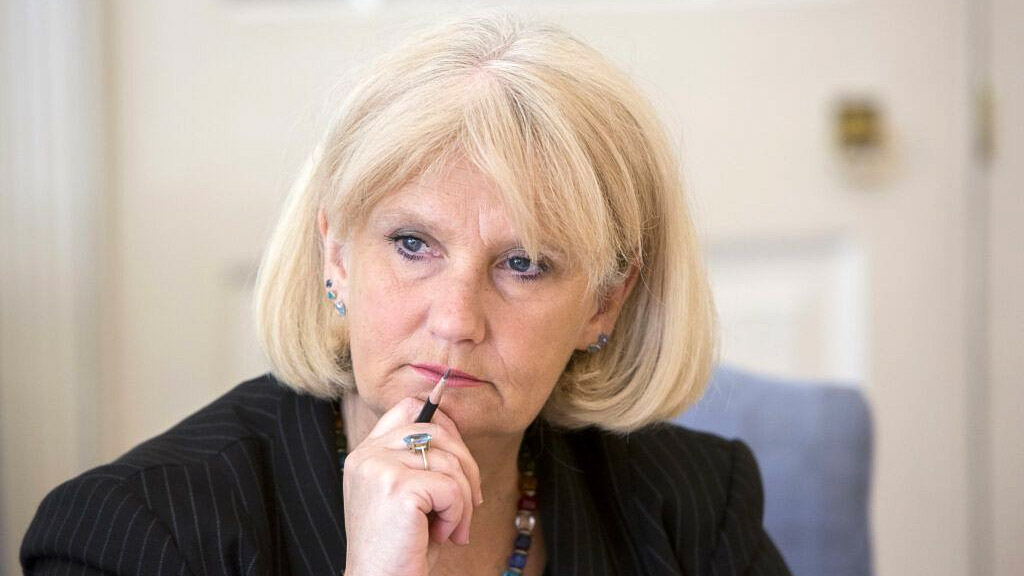The UK National Health Service (NHS) will stop taking money from the gambling industry to fund addiction services, the publicly-funded healthcare system announced on Saturday. Moreover, two new gambling clinics are set to open in England this year amid record demand for specialist support for gambling addiction.
The new clinics, to be based in Southampton and Stoke-On-Trent, will open “from May.” They will join the other five NHS gambling addiction clinics already open in London, Leeds, Manchester, Sunderlands, and a national children and young person’s pilot clinic.
Thus, the total will be brought to seven specialist clinics in place across England. The existing facilities will inform “the rollout of further gambling clinics” when the services are evaluated later this year, the NHS informed.
The announcement builds upon a record-high demand for support for gambling addiction. Between April and December last year, 668 people with the most severe gambling addiction issues were referred to NHS gambling clinics, up from 575 during the same period in 2020 (a 16.2% increase).
We are delighted that two new NHS Gambling Harm clinics will open soon In Stoke-on-Trent and Southampton.
There is more support for gambling harm than ever across the NHS and third sector. https://t.co/GD8CUoiqry
— NHS Northern Gambling Service (@NHS_NGS) February 19, 2022
Along with the news, NHS mental health chief Claire Murdoch announced in a letter to charity GambleAware that the NHS will be fully funding its own gambling services from April, bringing the support in line with other NHS services.
The NHS mental health director said the opening of the two new gambling clinics in May is part of a £2.3 billion ($3.1 billion) investment into mental health services, which will help “even more people with the most serious gambling problems.” However, these efforts will not see input from the gambling industry.
“It is also absolutely right that the NHS now funds these clinics independently, recognizing the harmful effects this addiction can have on the nation’s mental health, and that predatory tactics from gambling companies are part of the problem, not the solution,” Murdoch said.
The NHS says the decision took into account feedback from patients and clinicians opposing the conflict of interest from the gambling industry, which generates profits of over £14 billion ($19 billion) yearly in the UK, in funding treatment for addiction.
Last week we launched a new campaign to raise awareness of the #GamblingHarms women experienced, how to spot the early signs of harmful gambling and signpost to practical steps to help keep their gambling under control.
— GambleAware (@GambleAware) February 10, 2022
Despite the ceasing of funding from the gambling industry, Murdoch said the NHS “cannot address the harms caused by gambling alone” and expects to maintain “a constructive operational relationship with GambleAware” as the change is implemented.
Additionally, the executive called on the industry to take appropriate measures to help combat problem gambling and gambling addiction in the UK as the NHS expands its programs regarding the issue.
“Gambling treatment services do not prevent people from being harmed in the first place and we would like to see the industry take firm action so that people do not need to seek help from the NHS,” Murdoch told GambleAware.
The NHS is also set to launch later this year a new Gambling Harm Network and Clinical Reference Group, “which will bring expertise together” and enable clinical teams to share best practices for helping to treat gambling addiction, according to a press release.
Town halls ask for more power to fight problem gambling
The NHS is not the only one concerned about a spike in problem gambling in the UK. Ahead of the publication of the Government’s white paper on the future of the Gambling Act, the Local Government Association (LGA) and the Association of Police and Crime Commissioners (APCC) asked for tougher regulation to protect communities and more power for town halls to fight problem gambling.
According to councils and Police and Crime Commissioners, evidence shows that gambling premises are typically located in more deprived areas, where residents may be more vulnerable to issues stemming from these practices.
However, councils claim they currently have limited powers to prevent the opening of gambling venues, even if there are already others nearby, or there are reasons why it may not be an appropriate location, such as proximity to schools or treatment centers.
The LGA calls for councils “to be given more legal flexibility and power” to approve or reject applications for premises, and is calling, along with the APCC, for measures “to reduce the volume of advertising and marketing” as vulnerable people are targeted with free bets and marketing offers even when they are actively trying to stop gambling.
Tougher UK gambling regulation needed to protect communities.
Local Govt Association & APCC want the Govt to to toughen up regulations on the gambling industry.
Read more on the LGA website 👉 https://t.co/9XYO1oVMlH#partnership #communities #addiction pic.twitter.com/HsoVknP7ml
— Association of PCCs (@AssocPCCs) February 19, 2022
“Councils are not anti-gambling, but it is time we have a regulatory framework for gambling that above all else prioritizes protecting vulnerable people from gambling-related harm and gives powers to local communities,” said Nesil Caliskan, Chair of the LGA’s Safer and Stronger Communities Board. “It is unacceptable that councils have such limited powers to refuse applications for new premises.”
The LGA and APCC are also urging the Government to introduce “a mandatory, statutory levy” on gambling firms, to replace the current system of voluntary industry donations funding research, education and treatment. This would help fund an expansion of support provision, both parties explain.
“We support calls for councils to have more legal flexibility and power with respect to local gambling premises and we want to see measures to get to grips with problem gambling online,” Joy Allen and David Sidwick, APCC joint leads for Addictions and Substance Misuse said.
